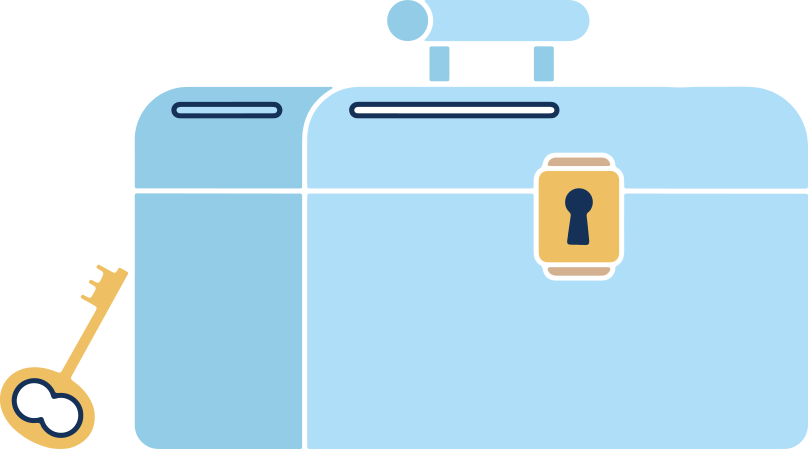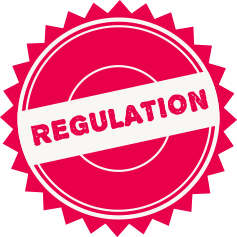Topic C: Medication Safety
Tips on Medication Safety
- Administer medication in well-lighted room
- Wash hands before preparing and administering medications.
- Ensure child gets the entire dose of medicine
- If only a partial dose is taken, call the parent and ask him/her to contact the doctor for instructions.
- Then ask parent to sign a report of what happened when the child is picked up.
- Observe if any side effects occur. Take proper action.
Medication Storage

Medication Storage
Medications also can be a safety risk if not stored properly. All medication, including refrigerated medication, must be:
- Stored in a separate, locked place out of child’s reach unless it is a first aid supply, diaper cream, sunscreen, toothpaste or epinephrine auto-injector (Epi-pen). First aid supplies, diaper cream, sunscreen, toothpaste and epinephrine auto-injectors (Epi-pen) must be inaccessible to a child.
- Kept in original bottle.
- Properly labeled.
It is critical that you familiarize yourself with all regulations.

Click Handout “What-the-Regs-say-about-Medication-Administration.pdf“
[ms_divider style=”normal” align=”left” width=”100%” margin_top=”30″ margin_bottom=”30″ border_size=”5″ border_color=”#f2f2f2″ icon=”” class=”” id=””][/ms_divider]

What the regulations say about medication
Type I centers and Type II licensed homes (922 KAR 2:120)
- Prescription and nonprescription medication shall not be given to a child except as authorized in writing by a licensed physician and with written request of the parent or person exercising custodial control [Sec 7 (4)].
- The child care facility shall keep a written record of the administration of medication, including: time, date, amount, and name of staff person giving the medication [Sec 7 (6)].
- Medication, including refrigerated medication, shall be: 1) stored in a separate, locked place, out of the reach of a child unless the medication is a first aid supply; 2) diaper cream, sunscreen or toothpaste inaccessible to a child; 3) An epinephrine auto-injector (Epi-pen) shall be inaccessible to a child. A child care-center shall have at least one person on site who has received training on the administration of an Epi-pen if the center maintains an EpiPen®. A childcare center shall seek emergency medical care for a child if an auto-injector is administered to the child. A child care center shall report to the child’s parent and the Cabinet in accordance with 922 KAR 2:090 [Sec 12 (1) (b)] if an auto-injector is administered to a child or emergency or rescue medications are administered for a child in care, such as medication to respond to diabetic or asthmatic condition, as prescribed by the child’s physician. Emergency or rescue medication shall be inaccessible to a child in care. (KRS 199.8951)
Certified family child care homes (922 KAR 2:100)
- Prescription and nonprescription medication shall be administered to a child in care with a daily written request of the child’s parent [Sec 15 (2)].
- Medication, including medicine that requires refrigeration, shall be stored in a locked container or area with a lock [Sec 15 (1)].
- Prescription and nonprescription medications shall be labeled and administered according to directions or instructions on the label [Sec 15 (3)].
Registered Child Care Provider (922 KAR 2:180)
- Medications shall be inaccessible to a child in care. [Sec 3, (4) f]
[ms_panel title=”Credits” title_color=”#000″ border_color=”#ddd” title_background_color=”#f5f5f5″ border_radius=”0″ class=”” id=””]
1 American Academy of Pediatrics (1999)
2 American Academy of Pediatrics (2003)
3American Academy of Pediatrics (1999)
Kentucky child care regulations[/ms_panel]
Resources
Handout Medication Administration Post this job aid in the area where medicine is given to children.
